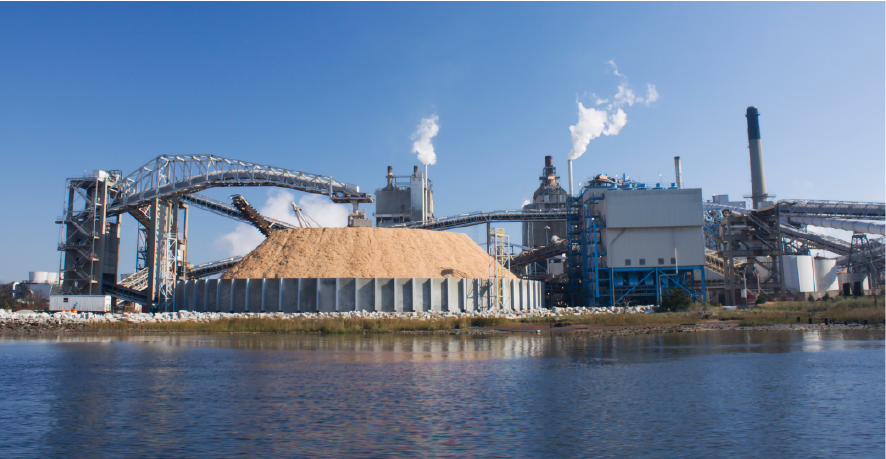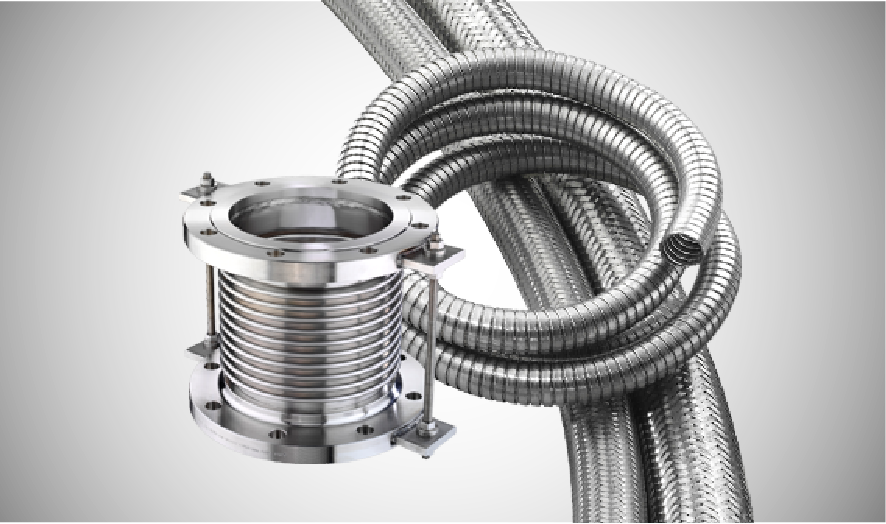Resource Center
Shop by Category
Metal Hose for Pulp & Paper Mills
Pulp and paper mills are among the most demanding industrial environments, utilizing high-pressure steam, corrosive chemicals, and high temperatures in nearly every stage of their processes. From paper production to chemical recovery, these facilities require durable and reliable piping solutions that can withstand the harsh conditions present. Metal hose assemblies and expansion joints have proven to be the perfect fit for such environments, offering unparalleled durability, flexibility, and resistance to corrosion and temperature extremes
Why Pulp & Paper Mills Need Metal Hose Assemblies

1. Highly Corrosive By-Products
Paper mills generate highly corrosive by-products, such as black liquor and white liquor, which are produced during the pulping process. These chemicals, combined with the presence of moisture and heat, create an environment that can quickly deteriorate traditional piping materials. Metal hose assemblies, crafted from corrosion-resistant metals like stainless steel and specialty alloys, provide the perfect solution. These hoses are designed to withstand corrosive substances, protecting your system from leaks, breakdowns, and costly downtime.
2. High Temperatures and Steam
Steam is an integral part of pulp and paper production. It is used in drying, boiling, pulping, and heating processes. The extreme heat generated in these processes requires piping solutions that can handle both the high temperatures and the fluctuating pressures. Metal hoses are engineered to handle extreme heat while remaining flexible, making them ideal for steam connections in these mills.


3. Flexible, Durable Solutions for Movement and Vibration
Uncontrolled movement is a significant challenge in any industrial environment, and pulp and paper mills are no exception. The rolling and rotating dryers in paper mills, for example, are notorious for putting tremendous stress on rotary joints. Over time, these joints start to wobble and exhibit movement, which can cause serious issues for the surrounding piping and systems.
This combination of movement, heat, steam, and chemicals makes flexible metal hose assemblies an ideal solution. They provide the flexibility and durability needed to absorb the stress caused by these continuous movements, preventing leaks, breakage, and downtime.

Hose Master Dogleg Assemblies: A Trusted Solution for the Paper Industry
At the heart of the pulp and paper industry, Hose Master's dogleg assemblies have become a trusted solution for the industry's most notorious problem: uncontrolled movement in rotary joints. These joints, which spin continuously during the paper-drying process, eventually exhibit movement and start to cause stress on the surrounding piping. Over time, this can lead to system failures, costly repairs, and operational disruptions.
Hose Master’s dogleg assemblies provide the flexibility needed to absorb movement while withstanding the heat, steam, condensate, and chemical exposure typical in the papermaking process. These assemblies are custom-designed to fit your system’s unique requirements, ensuring longevity, safety, and efficiency.
Why Metal Hose Assemblies are the Ideal Choice
When it comes to the pulp and paper industry, few piping solutions can match the performance of metal hose assemblies. Here's why they're the ideal choice for these demanding environments.
- Corrosion Resistance: With harsh by products, corrosion is a constant threat in paper mills. Metal hoses, particularly those made from stainless steel or high-grade alloys, offer superior protection against corrosion.
- Heat Resistance: Metal hose assemblies can withstand the extreme heat found in steam connections and boiler lines, ensuring long-term reliability.
- Flexibility and Durability: Metal hoses are incredibly flexible, allowing them to absorb movement, vibration and stress without breaking down or losing performance.
- Extended Lifespan: Compared to traditional piping materials, metal hose assemblies offer a longer lifespan, reducing the need for frequent replacements and maintenance.




